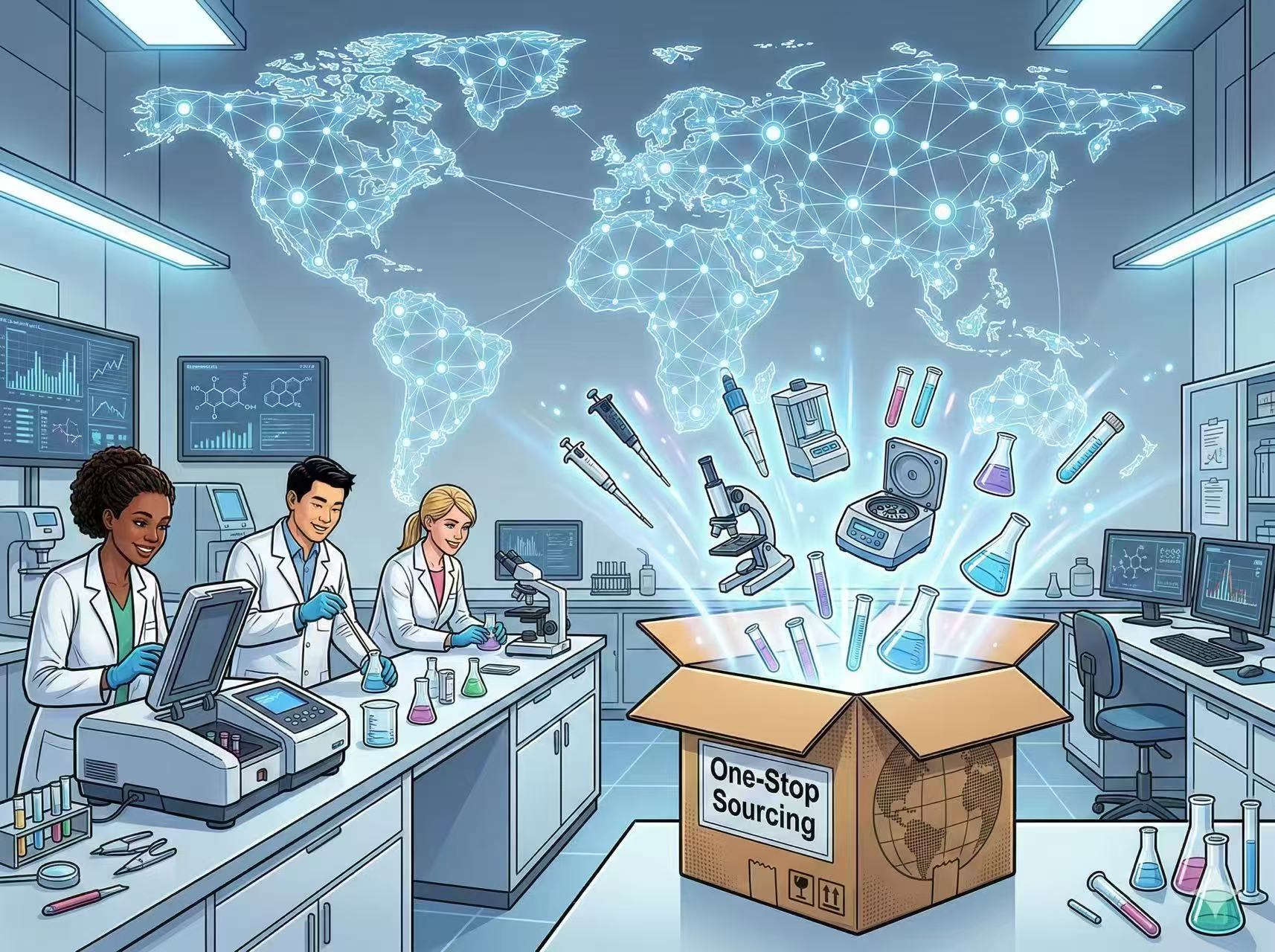 Industry News
Industry News 2026 Global Lab Equipment Sourcing Guide | One-Stop Supplier
2026 Global Lab Equipment Sourcing Guide | One-Stop Supplier
2026-02-27
2025-11-20
2025-11-20
2025-10-13
2025-08-27
2025-08-19
 Current Affairs
Current AffairsAI: The Core Driver of Industrial Leap from Automation to Intelligence
Gone are the days when industrial assembly lines were confined to mechanical and repetitive automated operations; equipment failures can now be predicted in advance, quality inspection defects identified with precision, and production codes generated automatically. Empowered by AI, industrial manufacturing is making a crucial leap from "automation" to "intelligence." Today, AI has deeply penetrated the entire production chain, reshaping manufacturing efficiency, quality, and R&D logic through technological innovation, and has become the core engine driving industrial upgrading.
Intelligent Industrial Robots: AI-Powered Frontline Forces in Manufacturing
Intelligent industrial robots are the "frontline warriors" for AI implementation in manufacturing scenarios. Unlike traditional robots that operate on fixed programs, the new generation of industrial robots integrate multi-dimensional sensors and deep learning algorithms, enabling them to perform complex tasks such as precision welding and flexible assembly. They can even dynamically adjust motion accuracy based on subtle differences in materials.
The integration of digital twin technology further breaks the "single-point operation" limitation: Haier COSMOPlat builds virtual production scenarios, synchronizing real-time robot operation data with virtual models to optimize multi-robot collaborative scheduling and simulate production bottlenecks in advance, boosting overall capacity by over 15%. In equipment maintenance, AI shows "predictive" capabilities: Sany Heavy Industry uses AI to analyze real-time equipment data (e.g., vibration, temperature) and build fault prediction models, increasing fault prediction accuracy to over 90% and reducing downtime by 30%—ending the passive "post-fault maintenance" model.
AI Empowers Quality Inspection and Logistics: Solving Efficiency & Precision Dilemmas
AI empowerment has also penetrated into two key links of the manufacturing chain—quality inspection and logistics—addressing long-standing industry challenges of efficiency and precision.
On the quality inspection front, machine vision achieves "keen eyesight" via AI: Huawei's Industrial AI Quality Inspection Platform trains models with massive defect samples, achieving over 99% accuracy in identifying surface scratches, dimensional deviations, and other defects in electronic components and auto parts. This not only outperforms manual inspection in efficiency and stability but also generates defect analysis reports to support production process optimization.
On the logistics front, AI-driven smart warehousing has revolutionized traditional models: Path planning algorithms calculate optimal material transportation routes in real time, and when combined with AGV robots and automated shelves, enable "wait-free" material flow. One auto parts enterprise reported a 20% increase in inventory turnover and 35% reduction in warehousing labor costs after adoption.
Generative AI: Taking Smart Manufacturing from Execution Optimization to Innovation
The rise of generative AI has elevated smart manufacturing to a new dimension—shifting from "optimizing execution" to "innovative design."
In production control, manual programming inefficiencies and errors are long-standing pain points. ADLINK Technology’s Tallgeese AI tool solves this by automatically generating PLC control codes based on production needs, cutting programming time by 60% and reducing manual errors by over 90% through code logic self-inspection—allowing production lines to quickly adapt to multi-product switching.
In R&D, the deep integration of AI and digital twins accelerates innovation: Many new energy enterprises have built "AI + physics" digital R&D systems. AI simulates material molecular structures and properties, which are then verified by physical experiments—shortening the R&D cycle of battery cathode materials and photovoltaic films from 6 months to under 1 month, gaining valuable time for new energy technological breakthroughs.
Full-Chain AI Penetration: Reshaping Industrial Competitiveness for the Future
From production execution to quality control, from equipment maintenance to R&D innovation, AI is reshaping industrial manufacturing’s core competitiveness through "full-chain penetration." In the future, as AI algorithms integrate more deeply with industrial scenarios, human-machine collaboration and full-process intelligent decision-making will become the norm—ushering industrial manufacturing into a truly intelligent new era of "high efficiency, low consumption, and innovation."